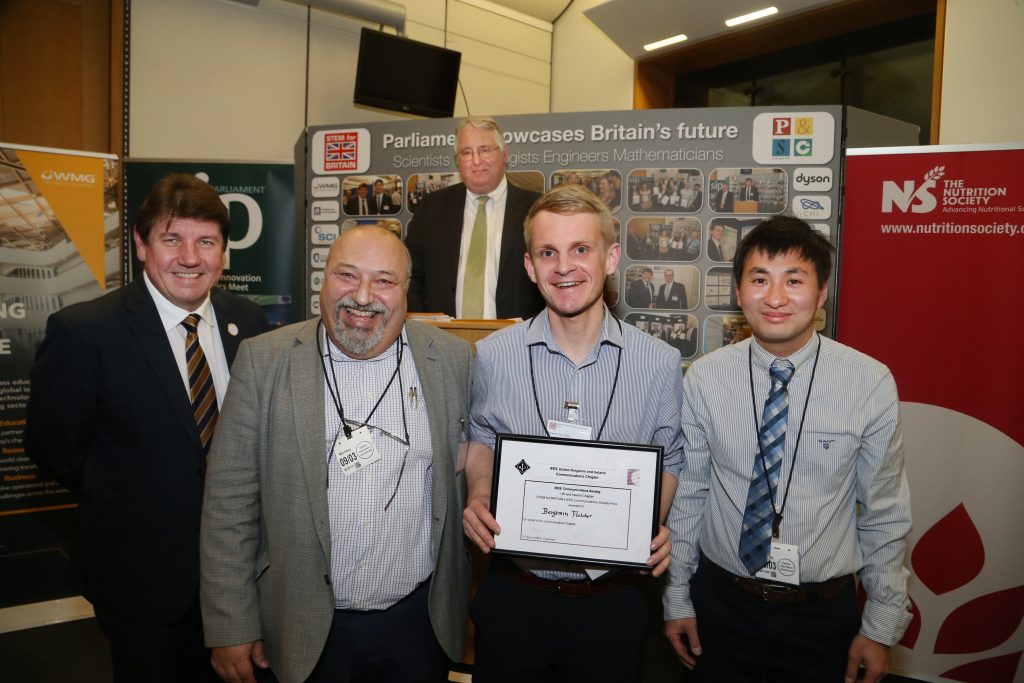Our team creates innovation
Research Team
Ben Fletcher
PhD Student
Ben Fletcher is a doctoral researcher based within the Electronics and Software Systems Department of the University of Southampton, where he completed his undergraduate degree between 2013 and 2016, graduating with First Class Honours. His research interests include low power SoC and embedded system design, mixed signal circuit and system design, energy harvesting systems, and three dimensional IC design; the topic of his PhD research. His collaboration with ARM (through EPSRC’s Industrial Cooperative Awards in Science & Technology (iCASE) programme) focuses on the development of cost-effective heterogeneous 3D integration methodologies, specifically, investigating the use of contactless coupling for low-cost heterogeneous 3D integration.
Close to completing his PhD, Ben has joined us in Arm Research, Cambridge, working in the Devices, Circuits and Systems group to further his research in 3D integrated circuits (3D-ICs). His research explores an alternative to TSVs for low cost straightforward ‘Lego-like’ 3D integration, where dies can be stacked with no additional back-end fabrication processing. More specifically, investigating the use of inductive coupling to transmit data and power wirelessly between tiers in a 3D-IC, to simplify (and reduce the cost of) the die stacking process. Ben has already made an impression in Arm Research, writing a successful blog series about his work, and recently winning the prestigious IEEE ComSoc award at STEM for Britain. To learn more about Ben’s work, take a look at his blog series on 3D integration.

Ben Fletcher receives his prize at STEM for Britain. Image copyright: John Deehan Photography Ltd.
“This work makes two primary contributions that will foster future work in academia and industry. Firstly, it demonstrates a cost-effective way of building SoCs where the peripheral bus spans multiple dies. This has interesting applications where dies built in disparate process technologies can be designed into a SoC just by stacking one on top of another. Secondly, the project has achieved impressive metrics, demonstrating the smallest link-area (achieving 7.8x area reduction compared to SoTA!) whilst achieving simultaneous power and data transfer.”
Shidhartha Das – Senior Principal Research Engineer
Related Theses
-
Fletcher, Ben (2020) Cost-Effective 3D-IC Design using Near-Field Inter-Tier Wireless Communication. University of Southampton, Electronics and Computer Science, Doctoral Thesis.Sep 2020
Related Publications
-
B. J. Fletcher, T. Mak and S. Das, “A 3D-Stacked Cortex-M0 SoC with 20.3Gbps/mm² 7.1mW/mm² Simultaneous Wireless Inter-Tier Data and Power Transfer,” IEEE Symposium on VLSI Circuits, Honolulu, Hawaii, 2020…Jun 2020
-
Benjamin James Fletcher, Shidhartha Das and Terrence Mak “A spike-latency transceiver with tuneable pulse control for low-energy wireless 3D integration”. IEEE Journal of Solid State Circuits, 2020. (doi:10.1109/JSSC.2020.2989543)May 2020
-
Benjamin Fletcher, Shidhartha Das, and Terrence Mak, (2019) A 10.8pJ/bit pulse-position inductive transceiver for low-energy wireless 3D integration. In IEEE European Solid-State Circuits Conference (ESSCIRC). vol. 49, IEEE. 4 pp.Aug 2019
-
Benjamin Fletcher, Shidhartha Das, and Terrence Mak, (2018) A low-energy inductive transceiver using spike-latency encoding for wireless 3D integration. In ACM/IEEE International Symposium on Low Power Electronics and Design: ISLPED…Jul 2019
-
Benjamin Fletcher, Shidhartha Das and Terrence Mak (2019) CoDAPT: a concurrent data and power transceiver for fully wireless 3D-ICs. In Design Automation and Test in Europe (DATE) 2019Mar 2019
-
Benjamin Fletcher, Shidhartha Das and Terrence Mak (2018) Design and optimization of inductive-coupling links for 3-D-ICs. IEEE Transactions on Very Large Scale Integration (VLSI) Systems, 1-13.Dec 2018
-
Benjamin Fletcher, Shidhartha Das, and Terrence Mak, (2018) Cost-effective 3D integration using inductive coupling links: Can we make stacking silicon as easy as stacking Lego? Arm Research Summit 2018, Cambridge,…Sep 2018
-
Benjamin Fletcher, Shidhartha Das, and Terrence Mak, (2018) A high-speed design methodology for inductive coupling links in 3D-ICs. At DATE Conference, Dresden, Germany. 19 – 23 Mar 2018. 6 pp.Feb 2018
-
Benjamin Fletcher, Shidhartha Das, Chi-Sang Poon and Terrence Mak, (2018) Low-power 3D integration using inductive coupling links for neurotechnology applications, At DATE Conference, Dresden, Germany. 19 – 23 Mar 2018.…Feb 2018

